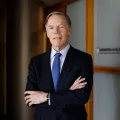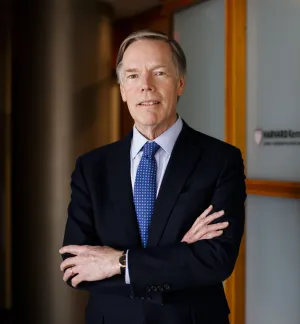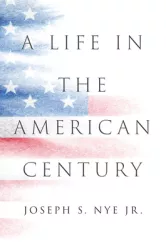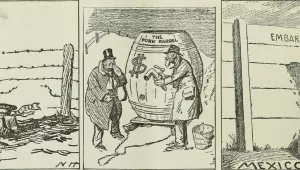WITH 2½ YEARS left in his presidency, Barack Obama finds a series of daunting global crises filling his Oval Office in-box. Countering Vladimir Putin’s aggression in Ukraine and Iran’s drive for nuclear weapons are top priorities. He must also do more to help the millions of refugees from Syria’s bloody civil war. And he and Secretary of State John Kerry may choose to circle back to the faltering Israeli-Palestinian talks. But his foreign-policy legacy will also depend on how successfully he tackles the longer-term global challenges on the horizon. Here are four that will test Obama (and his successors) in the years ahead.
Balancing partnership and competition with China. Former US ambassador Stephen Bosworth, an Asia specialist and Harvard colleague of mine, believes managing China’s rise could be the most difficult international challenge America has ever faced. On the positive side, the United States has a major economic stake in trade and investment with China. Beijing is also our primary partner on transnational challenges from terrorism to the environment and nuclear proliferation. At the same time, however, the United States and China will compete for military and political power in southern Asia and the Pacific as China begins to challenge our historic predominance in that vital region. How to juggle these competing priorities — retaining America’s number one position in Asia while keeping the peace with an increasingly powerful Beijing — is an underlying theme of Obama’s trip to the region this week.
A great leap forward on trade? Obama is negotiating two landmark free-trade agreements — the Trans-Pacific Partnership in Asia and the Transatlantic Trade and Investment Partnership with the European Union. If he can conclude both, they may well boost global growth and America’s future international power. But Congress has to agree, and prospects look grim for quick passage as the midterm elections approach. Trade exemplifies a particular challenge for this president. He has the right vision in lowering global trade barriers. But will he spend major political capital to persuade Congress, particularly reluctant Democrats, to bring these treaties across the finish line? The odds are against it.
Fraying relations with India and Brazil. President George W. Bush and, for a time, Obama himself enjoyed close strategic ties with these two rising powers. The US-India relationship, however, has fallen on hard times over Washington’s perceived inattention, threatened US trade sanctions on Indian pharmaceutical firms, and a bitter public dispute over the insensitive treatment of an Indian diplomat arrested in New York.
To make matters worse, the likely next prime minister, Narendra Modi, has been banned from visiting the United States since 2004 over allegations that he did not act to stop anti-Muslim killings in his state of Gujarat.
Meanwhile, at an Aspen Strategy Group foreign-policy conference near Sao Paulo last week, I heard a litany of complaints from Brazilian business and political leaders about the Snowden revelations and lack of US support for Brazil’s global ambitions.
Restoring close ties with Delhi and Brasilia will reinforce America’s global position. Obama will need to move quickly to reset relations with both following their elections this year.
Finding courage on climate change. My millennial students often say this is the great challenge of their generation — and they may be right. Obama has done more than any of his predecessors to move America in the right direction, but it has not been enough. Unless the world takes much more ambitious steps, the Intergovernmental Panel on Climate Change warns, severe global environmental consequences will ensue. Will Obama use the presidential bully pulpit to move this issue to the top of his agenda?
Obama won’t reach the finish line on all these daunting challenges before leaving the White House. But he still has time to show the international leadership that has marked our most successful foreign policy presidents. If, that is, he can find a way to strengthen America’s weakening global leadership in defiance of Tennyson’s lament that “we are not now that strength which in old days moved earth and heaven.”
Burns, Nicholas. “Obama’s longer-term foreign policy challenges.” The Boston Globe, April 24, 2014




